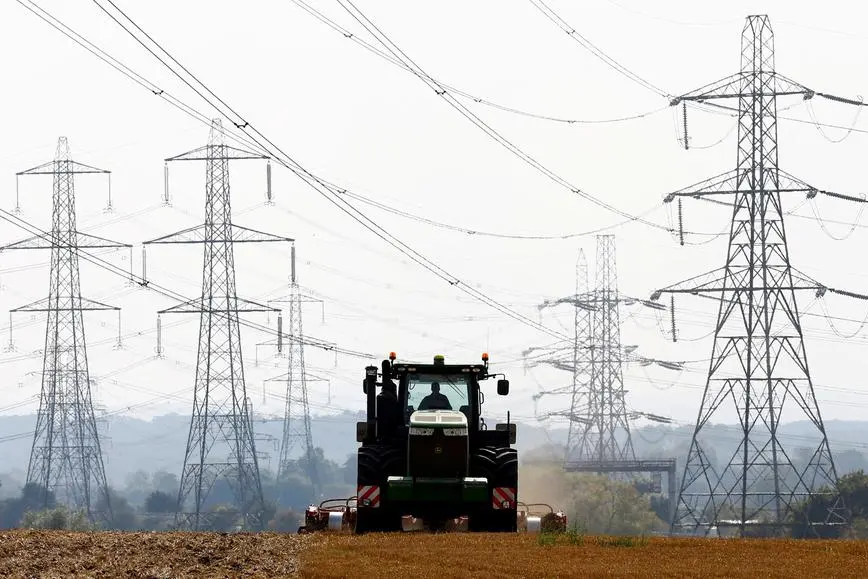PHOTO
LONDON - British finance minister Jeremy Hunt will offer discounts on energy bills to people who live near new electricity pylons and substations, part of a drive to cut obstacles to building new power infrastructure, the finance ministry said on Sunday.
The plan, which includes other measures to speed up infrastructure planning, could shave 10,000 pounds ($12,461) off a household bill over 10 years, the finance ministry said.
The measures form part of the Autumn Statement that Hunt will present on Nov. 22, hoping to revive the fortunes of both a stagnant British economy and the governing Conservative Party ahead of an election expected next year.
Hunt, who on Saturday warned of tough choices on welfare spending, is widely expected to extend existing incentives for corporate investment. The Sunday Times reported that he is considering cuts to income tax or national insurance.
The government hopes the planning reforms will halve the 14 years it currently takes on average to build a new electricity network - far longer than in other major economies and something that holds back industrial investment in Britain.
"Expanding the grid will unlock global investment for Britain and bring improvements for people across the country, with energy security that will keep energy costs down," a finance ministry source said in a statement.
British business investment in the third quarter stood 4% higher than its pre-pandemic level - a better performance than Germany, but some way behind France and the United States, according to a Reuters analysis of OECD data.
The opposition Labour Party, far ahead of the Conservatives in opinion polls, on Saturday outlined a plan it said would save households up to 3,000 pounds a year over the next decade.
About half of the savings would come from a drive to insulate homes better and by creating Great British Energy, a publicly-owned clean power generating company.
"The economy is not working for working people," Labour's finance spokeswoman Rachel Reeves said.
($1 = 0.8025 pounds)
(Editing by Ros Russell)





















